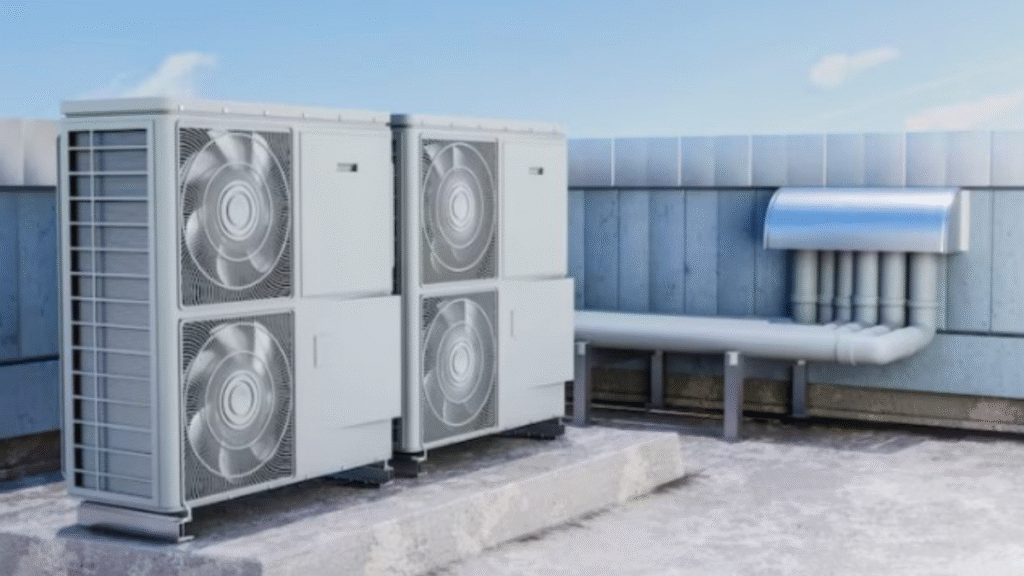Homeowners are increasingly aware of the importance of energy efficiency, not only for reducing utility bills but also for supporting long-term system performance and overall home comfort. Heating and cooling systems are among the most energy-demanding features in any residence, especially in climates with pronounced seasonal changes. As equipment ages, efficiency naturally decreases, leading to higher energy use and more frequent repair needs. Many families choose to invest in energy-efficient upgrades as a proactive way to improve comfort and lower long-term expenses. Professional guidance from reputable service providers such as Climate Systems Air Conditioning & Heating helps homeowners select the right upgrades for their home, ensuring lasting value and improved performance.
Energy-efficient upgrades encompass a wide variety of improvements, ranging from enhanced insulation to updated thermostats and modern HVAC components. While each upgrade provides individual benefits, the true value lies in how these improvements work together to create a more balanced and responsive system. Older systems often struggle to maintain steady temperatures or manage airflow efficiently, resulting in energy waste and inconsistent comfort levels. By switching to newer, energy-efficient options, homeowners gain control over their indoor environment while reducing the strain on their equipment.
The long-term advantages of energy-efficient HVAC upgrades become clear when considering utility savings, improved system reliability, and enhanced home comfort. Reducing energy waste contributes not only to personal savings but also to broader environmental goals. Homeowners who invest in efficiency are better prepared for rising energy costs, future maintenance needs, and potential home resale benefits. Understanding these advantages helps families make informed decisions that support both present comfort and future value.
Why Older Systems Lose Efficiency Over Time
All mechanical systems gradually lose efficiency as they age. Components such as motors, compressors, and fans wear down, requiring more energy to provide the same level of performance. Dust buildup, minor leaks, and outdated technologies further reduce efficiency. When heating and cooling equipment becomes less effective, it runs longer and harder, driving up monthly energy bills.
Older systems may also struggle with temperature consistency. Rooms may feel warmer or cooler than others, and the system may take longer to reach the desired temperature. These inconsistencies place additional pressure on equipment, causing faster wear and tear. Energy-efficient upgrades address these limitations by using modern technology designed to maximize output while minimizing energy consumption.
Modern Technologies That Improve Efficiency
Today’s HVAC systems benefit from advancements that allow them to operate more efficiently than older models. Variable-speed motors adjust airflow based on demand, reducing unnecessary energy use during mild conditions. High-efficiency compressors provide more reliable cooling without cycling excessively. Modern heating systems use improved heat exchangers that distribute warmth more consistently and safely.
Thermostat upgrades also play a significant role. Programmable and smart thermostats help homeowners manage indoor temperatures more effectively by automatically adjusting settings based on schedules or real-time conditions. These devices prevent unnecessary system use, helping maintain efficiency throughout the day. The integration of sensors and automation reduces energy waste and enhances comfort simultaneously.
Insulation and Air Sealing Support HVAC Efficiency
Energy-efficient upgrades extend beyond the mechanical system itself. Proper insulation and air sealing help maintain indoor temperatures by preventing heat loss in winter and heat gain in summer. Even the most advanced HVAC equipment cannot perform optimally if conditioned air escapes through walls, ceilings, or poorly sealed ductwork. Upgrading insulation creates a stable environment and reduces the need for frequent system operation.
Air sealing techniques address drafts, gaps, and leaks that compromise comfort. When combined with efficient HVAC equipment, these improvements significantly reduce energy waste. Homeowners benefit from more consistent indoor temperatures and lower monthly operating costs.
The Role of Ventilation in Improved Efficiency
Ventilation is an essential but often overlooked aspect of energy efficiency. Without proper ventilation, indoor air becomes stagnant, making it more difficult for HVAC systems to maintain balanced temperatures. Modern systems include ventilation enhancements that promote better airflow and reduce humidity.
Balanced ventilation helps improve indoor comfort and prevents common issues such as excess moisture, mold growth, and uneven temperatures. As HVAC systems operate more efficiently with proper ventilation, homeowners experience better performance without increasing energy usage. Professional evaluations from a North Pittsburgh HVAC contractor help ensure that ventilation features operate effectively and support long-term efficiency.
Reduced Wear and Tear Through Efficient Operation
Energy-efficient systems experience less strain during operation because they adjust to real-time conditions more effectively. Instead of cycling on and off frequently, modern systems run at optimized speeds, resulting in smoother operation and fewer mechanical issues. Reduced strain prolongs equipment life and lowers the likelihood of breakdowns during peak seasons.
Homeowners who upgrade their systems often notice fewer repair visits and improved reliability throughout the year. This reduction in wear not only extends equipment longevity but also contributes to more consistent comfort. Long-term maintenance costs decrease, and homeowners can better anticipate future upgrade needs.
Enhancing Home Value Through Energy Efficiency
Energy-efficient HVAC upgrades often increase the value of a home. Prospective buyers increasingly look for features that reduce utility costs and improve comfort. Homes with modern systems appear more appealing because they offer reliability and long-term savings that older equipment cannot match.
These upgrades signal responsible home ownership and suggest that the home’s mechanical systems have been well cared for. This perceived value can influence purchase decisions and help a property stand out in a competitive market. Even if homeowners do not plan to sell soon, energy-efficient improvements remain a strong investment in both function and value.
Environmental Benefits of Energy-Efficient Systems
Energy-efficient technologies reduce energy consumption, which contributes to a smaller environmental footprint. By using less fuel or electricity, these systems help decrease emissions and conserve natural resources. Homeowners who value sustainability often prioritize efficiency because it supports both personal and environmental goals.
Efficient systems also reduce waste by lasting longer and requiring fewer repairs or replacements. This extended lifecycle diminishes the environmental impact associated with manufacturing and disposal of equipment components. These long-term benefits contribute to a healthier environment for future generations.
Planning for Long-Term Comfort and Savings
Energy-efficient upgrades help homeowners plan for both short-term comfort and long-term cost savings. By investing in updated systems and improved home infrastructure, families secure more stable utility expenses and fewer unexpected maintenance issues. Over time, these savings add up and help offset the initial investment.
Homeowners who schedule routine maintenance and update components as needed experience the greatest long-term value. By taking a proactive approach, they ensure their systems remain dependable, efficient, and equipped to handle seasonal demands.
Conclusion
Energy-efficient HVAC upgrades provide long-term value by supporting improved comfort, reduced utility costs, and enhanced system performance. These improvements help homeowners maintain a stable indoor environment while reducing strain on their equipment. With expert guidance from trusted professionals like Climate Systems Air Conditioning & Heating, families can make informed decisions that support both immediate comfort and future savings.







